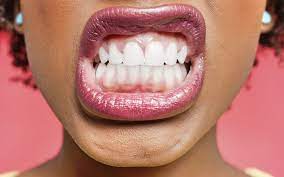Teeth grinding, also known as bruxism, is a condition where individuals unconsciously grind or clench their teeth, often while sleeping. This common issue can lead to tooth damage, jaw pain, headaches, and even sleep disturbances. If you find yourself grinding your teeth, it’s essential to understand how to stopTeeth Grinding and explore the various treatment options available. In this article, we will cover effective methods to help manage and prevent teeth grinding, ensuring you maintain optimal oral health.
Identifying the Causes of Teeth Grinding:
Understanding the root cause of bruxism is the first step in finding the right treatment. Teeth grinding can result from a combination of physical, emotional, and lifestyle factors. Stress and anxiety are among the leading causes of bruxism, particularly during sleep. Misaligned teeth, sleep disorders, and certain medications can also contribute to the problem. Identifying the underlying cause allows for a more targeted approach in stopping teeth grinding.
- Stress and anxiety are common triggers for bruxism.
- Misaligned teeth or bite issues can exacerbate the grinding habit.
- Sleep disorders like sleep apnea may contribute to teeth grinding.
Using Mouth Guards for Teeth Grinding Relief:
One of the most effective ways to stop teeth grinding is to use a mouth guard, also known as an occlusal splint. This custom-fitted dental appliance is worn at night and acts as a protective barrier between your upper and lower teeth. Mouth guards are designed to absorb the pressure exerted during grinding, preventing tooth wear and reducing jaw discomfort. They can also help alleviate headaches caused by bruxism.
- Custom-fitted mouth guards are recommended for optimal protection.
- Over-the-counter mouth guards are available but may not offer the best fit.
- Mouth guards are effective in reducing tooth damage and relieving jaw pain.
Managing Stress and Anxiety to Reduce Bruxism:
Since stress and anxiety are major contributors to teeth grinding, implementing stress management techniques can be a key factor in reducing the habit. Relaxation methods can help calm the mind, promote sleep, and decrease the likelihood of bruxism episodes.
Effective ways to manage stress include:
- Deep breathing exercises: Help reduce tension and anxiety.
- Yoga or meditation: Promote relaxation and mindfulness.
- Regular physical exercise: Increases endorphins and reduces stress levels.
By practicing these techniques, you can significantly decrease the frequency and intensity of teeth grinding.
Correcting Bite Issues with Dental Treatments:
If your teeth grinding is caused by misalignment or bite issues, seeking dental treatment to correct these problems can be an effective solution. Dentists can offer treatments such as braces, clear aligners, or occlusal splints to improve your bite and reduce the need for grinding. Correcting these dental issues not only helps stop bruxism but also improves overall oral health and function.
- Braces or clear aligners can straighten your teeth and improve bite alignment.
- Occlusal splints can help correct bite discrepancies and reduce grinding.
- Dental treatment for bite correction can provide long-term relief from bruxism.
Relaxing Jaw Muscles with Heat or Massage:
Relaxing the jaw muscles can help alleviate tension and discomfort caused by bruxism. Heat therapy and jaw exercises are effective ways to relieve muscle tightness and reduce pain associated with teeth grinding.
Here are some tips to help relax the jaw muscles:
- Apply a warm compress: Place it on your jaw for 10-15 minutes before bed to relieve tension.
- Gentle jaw massages: Massage the jaw muscles to help release tightness and improve circulation.
- Jaw exercises: Perform simple movements to reduce muscle stiffness and increase flexibility.
These methods can help you relax and ease the discomfort caused by bruxism.
Seeking Professional Treatment for Severe Bruxism:
In cases where Teeth Grinding Treatment is persistent and causing significant damage, seeking professional treatment may be necessary. Dentists can provide more advanced options, including Botox injections or restorative dental procedures, to manage severe bruxism and prevent long-term damage to your teeth and jaw.
- Botox injections can help relax the jaw muscles and reduce grinding.
- Restorative dental work like crowns or veneers can repair teeth damaged by bruxism.
- Consult a dentist for a personalized treatment plan based on the severity of your condition.
Conclusion:
Teeth grinding can cause considerable discomfort and lead to serious dental problems if left untreated. However, by understanding the causes and exploring various treatment options, it is possible to stop teeth grinding and protect your oral health. Whether through the use of mouth guards, stress management, dental treatments, or muscle relaxation techniques, there are effective ways to reduce bruxism and alleviate its symptoms. Taking proactive steps now can help ensure your teeth and jaw remain healthy for years to come.





Comments